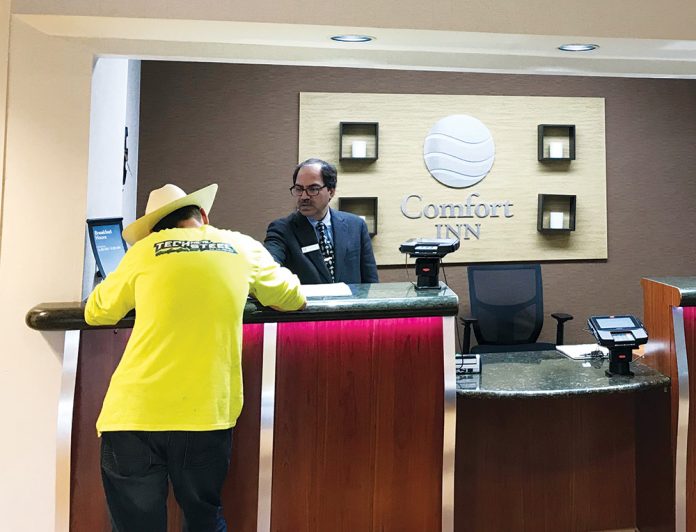
The City Council’s new plan for a tourism business inclusion district aims to raise funds to entice more visitors to Morgan Hill, but the effort could face opposition from the owners of smaller hotels who fear they won’t be sufficiently represented.
Approving a plan for an inclusion district comes on the heels of Morgan Hill residents passing a Transient Occupancy Tax increase on Nov. 6. The tax increase, known as Measure H, was overwhelmingly approved with 79 percent of the vote as provisional and mail-in ballots were still being counted earlier this week.
The council had previously agreed that if voters passed the tax increase, they would form an inclusion district. The tax increase added another 1 percent to the cost of hotel room stays in the city, bringing the current transient occupancy tax to 11 percent.
Money collected from the hotel tax hike will provide an additional $270,000 in annual funds to be used for the city’s emergency response systems, police and street improvements. According to the city’s 2017 comprehensive financial report, the 10 percent transient occupancy, or hotel, tax brought in $2.7 million in annual revenue.
The proposed new tourism district would create $410,000 in annual revenue that will be used exclusively for tourism advertising for the city. The district won’t be formed until it gains approval from the city’s hotels and faces a public review period expected to take place at the beginning of 2019.
The district would generate revenues through another fee on hotel room stays, applying to all lodging within district limits. The proposed rate is 1.5 percent of the short-term room rental revenue.
Both the tax increase and the inclusion district are part of an effort by city officials to increase tourism to Morgan Hill, which in turn increases revenue from other sources. The inclusion district’s proposed boundary applies to all lodging businesses operating within the city, which is currently 18 hotels.
The district’s board would help to decide how to use the funds to best increase tourism. Council members had previously for an additional seat on the board to be filled by a community member.
The City Council Nov. 7 approved a board made up of four hotel representatives, two city appointees and three community members. Community members would represent local wineries, sports and recreation and tourism in general on the board.
While the council and many community members have been anxious to move forward with the long-awaited district, some representatives of smaller hotels and motels in the city are unhappy with the current plan.
Asit Panwala spoke on behalf of the Budget Inn and the Comfort Inn in Morgan Hill. He authored a letter to the council which several other small hotel owners signed in support. Panwala told the council at the Nov. 7 meeting that the owners of smaller hotels had hoped to have more of a voice on the district.
Panwala’s letter read, “It is our collective concern that with only four hotel board members, smaller motels/hotels will have no representation on the board despite the fact that they are also paying the assessment. It has been discussed that the larger hotels (Marriott, La Quinta, Holiday Inn Express and Hampton Inn) will each have a representative on the board. Our primary concern is that our assessments should also benefit the smaller motels, especially those on old Monterey Road corridor.”
Other representatives of small hotels echoed this concern. Council members said the additional community seat would ensure small hotels had a voice on the board
The district would be in effect for five years, and several council members said this time limit allowed the opportunity to reassess the plan if it was not working for all hotels.
John Horner, executive director of the Morgan Hill Chamber of Commerce, addressed the council in support of the district plan. “Nothing is absolutely perfect,” said Horner. “Nothing gets to 100 percent consensus, but this is as close as I’ve seen anything this difficult get.”
The council approved a nine-member board for the district. Hotels will be given a weighted vote depending on the amount of money they are expected to contribute to the district.
The plan for the district can only pass if hotel owners expected to collectively pay at least 51 percent of the proposed assessment approve it. If the district plan is passed it will then go back to the council as a resolution of intent; at that point there will be a public hearing, anticipated to happen in January 2019.







